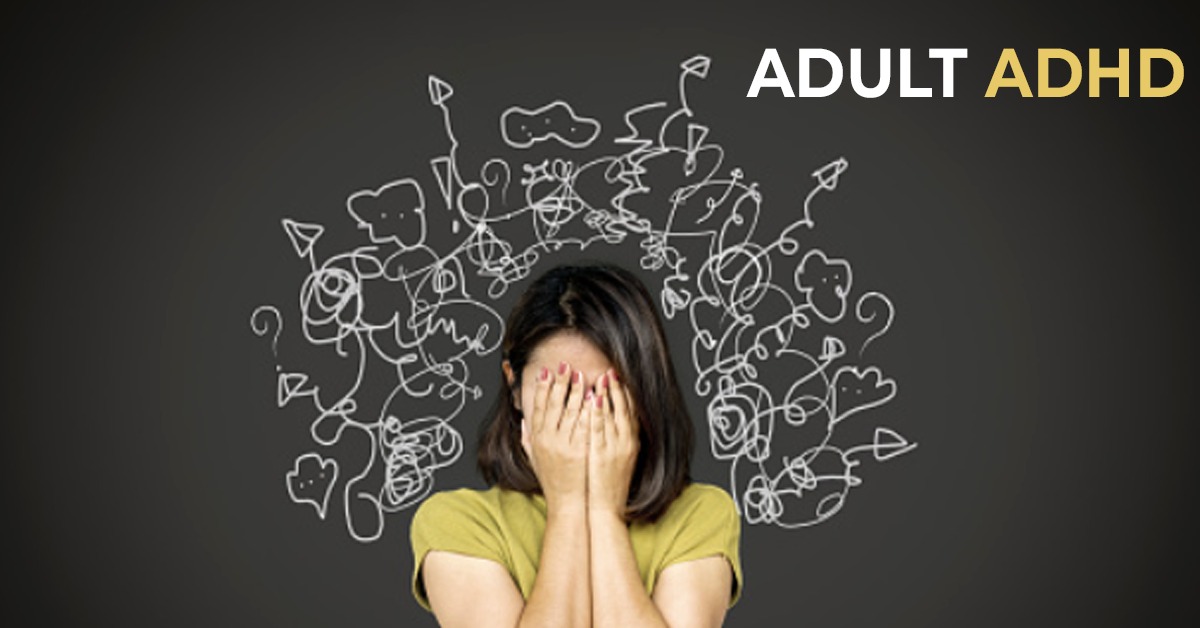The Real Reason You Need To Take Adult ADHD Seriously
ADHD is most typically associated with school-age children; however, studies show that it affects roughly 3-4% of adults worldwide1. Untreated, this can be extremely severe, producing problems at work, in relationships, and in personal safety. In this section, we will examine common indicators of ADHD in adults and what to do if you believe you or a loved one may be impacted.
How can I tell if I have ADHD?
ADHD is distinguished by three major symptoms: hyperactivity, difficulties maintaining focus, and increased impulsivity.
These characteristics are generally obvious in children: your child may have difficulties sitting still, paying attention at school, and thinking through decisions, for example.
These features, however, are more easily concealed in adults. Adult lives, for example, are frequently less organized than those of school-aged children, and adults with ADHD have frequently had to learn coping mechanisms to manage their issues.
Naturally, these tendencies can have a significant influence on work and social interactions, and if the cause is unknown, sufferers may feel less competent, intellectual, or charming than their colleagues.
But is ADHD really a problem?
ADHD, like other psychological illnesses, is only a concern when it negatively affects your health and/or happiness. Many persons with ADHD enjoy a good quality of life; nonetheless, it is crucial to highlight that ADHD is connected with some challenges. As a result, it is entirely appropriate to seek assistance if you believe you require it. The danger of accident or injury is perhaps the most serious concern connected with ADHD. Because persons with ADHD tend to be impulsive, research has indicated that adults with ADHD are more prone than non-sufferers to have serious accidents.
ADHD has also been proven in studies to have a pervasive negative impact on essential aspects of daily life. Adults with ADHD, for example, are statistically less likely to acquire and keep steady employment, which can lead to financial issues. Furthermore, they are more likely to get divorced, be involved with the criminal justice system, and graduate from university than their peers who do not have ADHD. Furthermore, ADHD in adulthood is frequently related to excessive use of recreational substances.
Consult an ADHD psychiatrist if you are concerned about addiction. Nowadays, some psychiatrists offer Online ADHD Assessments in the UK , so if you live in the UK or anywhere else in the world, you may now connect with the best professionals from across the world.
What you can do about it?
If you feel that you or someone close to you may be suffering from ADHD, it is best to get professional help - your GP should be able to assist you with this. If you live in the United Kingdom, you might choose Private ADHD Assessment in the United Kingdom.
You may also want to see a psychiatrist, who may prescribe medication to help you focus your attention better. Similarly, psychologists can assist you in developing coping techniques to reduce the burden of ADHD on your daily life. Psychologists and counselors are also well-positioned to discuss the emotional effect of your diagnosis in a private and secure setting. You can also consult an ADHD Psychiatrist online for ADHD diagnosis and treatment.
Finally, if you notice that you are having difficulty maintaining focus and that this is affecting your memory, consult your doctor. Subtle changes to your living environment can sometimes be a straightforward remedy to ADHD-related memory problems.
Adult ADHD therapies often include medication, education, skill training, and psychological counseling. Often, a combination of these is the most effective treatment. These medications can help control many of the symptoms of ADHD, but they do not cure it.
